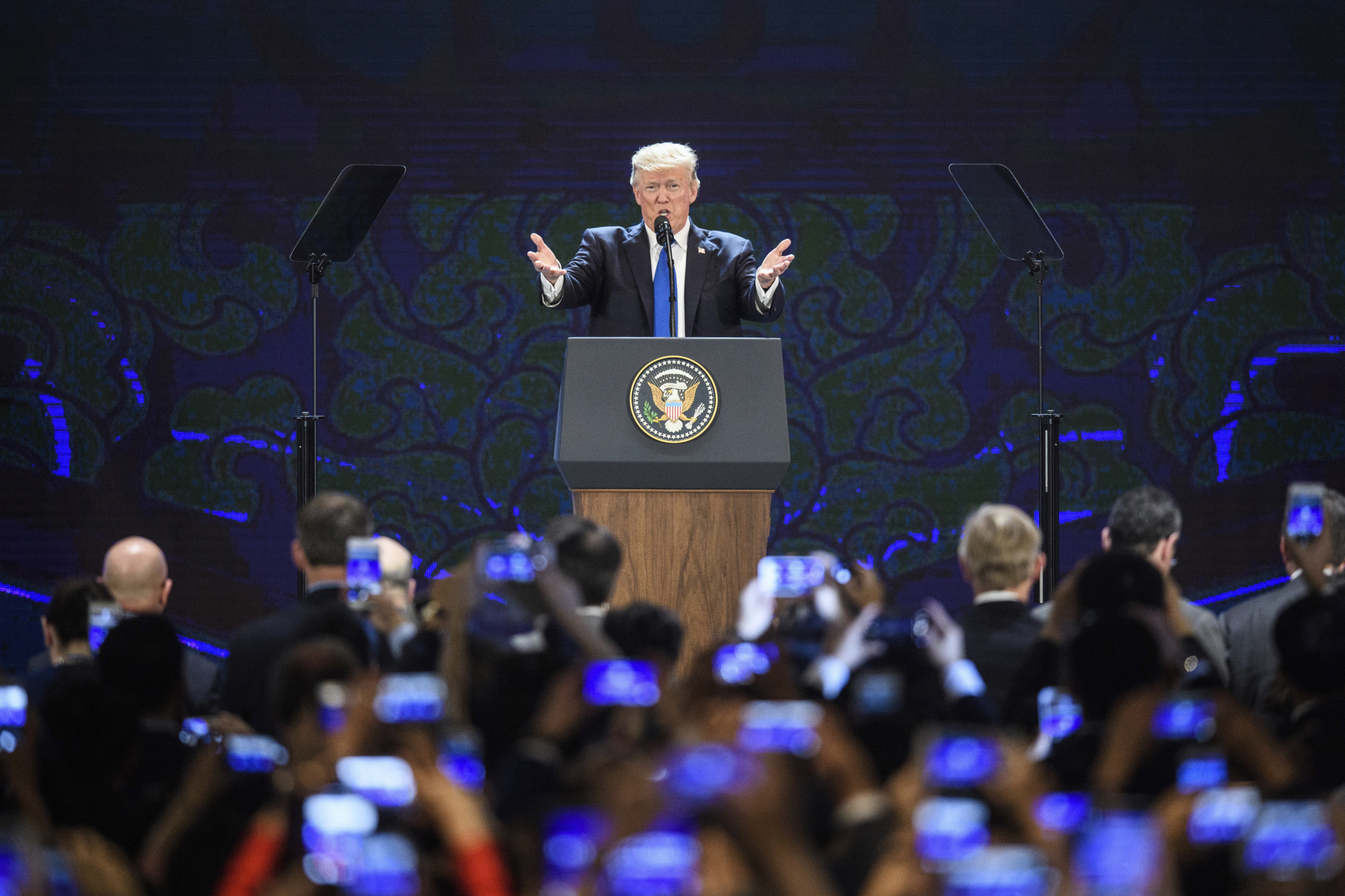The U.S. administration of President Donald Trump has launched a new Asia policy, known as the Free and Open Indo-Pacific (FOIP). Trump clearly laid out the strategic concept underlying the FOIP during his remarks in Danang, Vietnam, last November: "Today, I am here to offer a renewed partnership with America to work together to strengthen the bonds of friendship and commerce between all of the nations of the Indo-Pacific, and together, to promote our prosperity and security. ... I've had the honor of sharing our vision for a free and open Indo-Pacific. ... We have been friends, partners and allies in the Indo-Pacific for a long, long time, and we will be friends, partners and allies for a long time to come."
Trump also emphasized that "we must uphold principles that have benefited all of us, like respect for the rule of law, individual rights and freedom of navigation and overflight, including open shipping lanes."
Trump's remarks reflected an awareness of the challenge posed by China. In the National Security Strategy (NSS) issued by the U.S. government shortly after Trump's visit to Danang, China (and Russia) were both identified as "revisionist powers" posing the "central challenge" to American prosperity and security because of their attempts to upend the global and regional orders constructed by the United States in the postwar period.


















With your current subscription plan you can comment on stories. However, before writing your first comment, please create a display name in the Profile section of your subscriber account page.